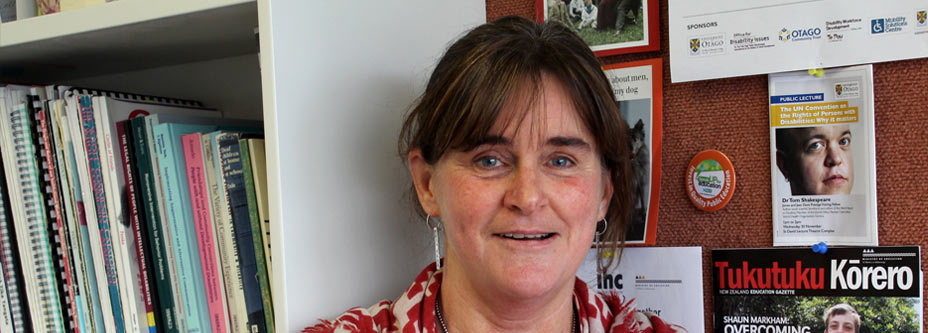
A fair go for disabled students
Disabled students' right to education is being clearly compromised, according to a senior lecturer in disability studies and education.
Dr Gill Rutherford (College of Education) says that, unfortunately, it is not uncommon for disabled students to be taught by untrained, unqualified, unsupervised teacher aides. She likens it to going to the doctor to be treated for a significant medical condition by the practice receptionist.
“The fundamental injustice is that we sometimes assign those who are least qualified and experienced to the care of those who, through no fault of their own, may have the most complex learning characteristics. Now that's not fair. We wouldn't do that to any other student.”
Rutherford says this seems to be one of the consequences of simplistically sorting students into categories of “special needs” and “normal” and making assumptions about the capacity of each kind of student.
“We need to recognise that every student can learn, has a right to learn, and does so in different ways, regardless of impairment.
“We know that teachers working in partnership with teacher aides to support all students' learning is the optimum way of serving students and there are wonderful examples of this happening in schools throughout New Zealand. This way of working needs to become standard practice in all schools, so that education becomes less of a lottery for disabled students.”
Rutherford completed her PhD in 2008 on disabled students' and teacher aides' experiences of schools and has since had several articles published on the subject.